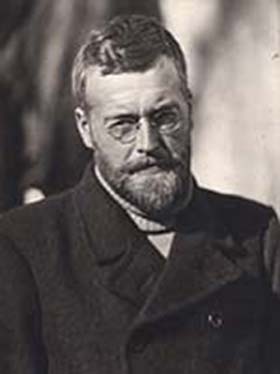James Wordie facts for kids
Quick facts for kids
Sir James Mann Wordie
|
|
|---|---|

James Wordie, photographed on the Imperial Trans-Antarctic Expedition in 1914
|
|
| Born | 26 April 1889 Glasgow, Scotland
|
| Died | 16 January 1962 (aged 72) Cambridge, England
|
| Resting place | Church of the Holy Rude, Stirling |
| Other names | Jock Wordie |
| Alma mater | University of Glasgow St John's College, Cambridge |
| Spouse(s) | Gertrude Henderson |
| Awards | CBE, FRS, FRSGS, LLD, W. S. Bruce Medal Founder's Medal Back Award Scottish Geographical Medal |
Sir James Mann Wordie (born April 26, 1889 – died January 16, 1962) was a famous Scottish polar explorer and geologist. His friends called him Jock Wordie. He explored the coldest parts of the world, especially the Antarctic.
Wordie was also the President of the Royal Geographical Society from 1951 to 1954. This is a very important group for explorers and geographers.
Contents
Early Life and Learning
James Wordie was born in Partick, Glasgow, Scotland. His father, John Wordie, owned a big transport company.
James went to school at Glasgow Academy. After that, he studied Sciences at the University of Glasgow, where he earned a degree in Geology in 1910. He then continued his studies at St John's College, Cambridge.
While at Cambridge, he met other explorers like Frank Debenham and Raymond Priestley. They had been on an Antarctic expedition with Robert Falcon Scott. Meeting them sparked Wordie's interest in exploring the polar regions.
Adventures in Polar Exploration
In 1914, James Wordie joined Sir Ernest Shackleton's famous expedition to the Antarctic. This trip was called the Imperial Trans-Antarctic Expedition. Wordie was the geologist and the main science leader for the team.
The expedition faced huge challenges. Their ship, the Endurance, got stuck in the thick ice of the Weddell Sea. The ice eventually crushed the ship in 1915. Even though the expedition didn't go as planned, Wordie played a key role. He helped keep everyone's spirits up. He also made important scientific observations about the oceanography (the study of oceans) and the pack ice (large areas of floating ice). He also collected valuable geological rock samples.
After returning to the UK, Wordie served in the army during World War I. He was with the Royal Artillery in France from 1917 to 1918.
Wordie went on nine polar expeditions in total, including the Endurance journey. In the 1920s and 1930s, he made many trips to the Arctic. He also helped train a new generation of young explorers, like Vivian Fuchs and Gino Watkins. He became a respected leader in British polar exploration. Many expeditions would ask for his advice before setting off. The Wordie Ice Shelf in Antarctica is named after him.
During World War II, he worked for Naval Intelligence, helping with important information for the navy.
Wordie was also the chairman of the Scott Polar Research Institute (SPRI). This institute studies the polar regions. As president of the Royal Geographical Society, he helped plan the first successful climb of Mount Everest by Edmund Hillary and Tenzing Norgay. He also helped Vivian Fuchs with the first crossing of the entire Antarctic continent. This was a goal Shackleton had tried to achieve years before.
Later Life and Achievements
Both the University of Glasgow and the University of Hull gave him special honorary doctorates (LLD) for his achievements. In 1954, he became an honorary fellow of Trinity College Dublin.
James Wordie passed away in Cambridge on January 16, 1962. He is buried in the churchyard of the Church of the Holy Rude in Stirling, Scotland.
Family Life
In 1923, James Wordie married Gertrude Henderson.
Honors and Recognition
Wordie received many awards for his work. He was chosen as a Fellow of the Royal Society of Edinburgh in 1922.
He received the first W. S. Bruce Medal in 1926 and the Founder's Medal in 1933. He also got the Scottish Geographical Medal in 1944. He was made Master of St John's College, Cambridge. In 1957, King George VI made him a knight for his important contributions to polar expeditions.
Many places and geological formations are named after him, including:
- Mount Wordie
- Wordie Point
- Wordie Bay (in Greenland)
- Wordie Seamount (an underwater mountain)
- Wordie Ice Shelf
- Wordie Glacier
- Wordie Nunatak (a rock peak surrounded by ice)
- Point Wordie
 | James Van Der Zee |
 | Alma Thomas |
 | Ellis Wilson |
 | Margaret Taylor-Burroughs |

